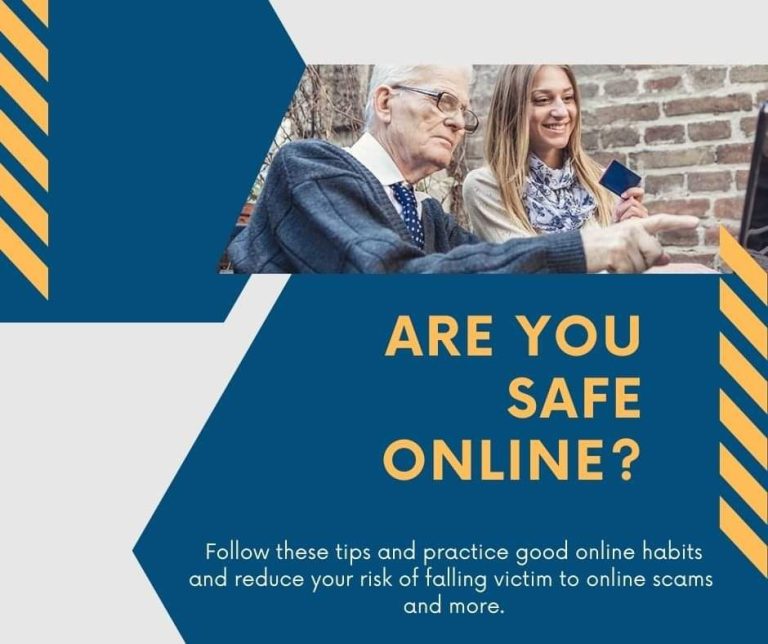Ensuring Online Safety for the Elderly

Ensuring online safety for the elderly is crucial as they may be more vulnerable to online scams, fraud and privacy breaches.
Ensuring online safety for the elderly is crucial as they may be more vulnerable to online scams, fraud and privacy breaches. Here are some tips to help seniors stay safe while using the internet:
- Educate About Online Risks:
- Teach seniors about common online scams and threats, such as phishing emails, fake websites and identity theft. Help them recognise warning signs and understand how to protect themselves online
- Use Strong Passwords:
- Encourage seniors to use strong, unique passwords for their online accounts and avoid using easily guessable information such as birthdays or pet names. Consider using a password manager to securely store and manage passwords.
- Enable Two-Factor Authentication:
- Enable two-factor authentication (2FA) on their accounts whenever possible. 2FA adds an extra layer of security by requiring a second form of verification, such as a code sent to their phone, in addition to their password.
- Keep Software Updated :
- Ensure that seniors' devices, including computers, smartphones, and tablets have up-to-date software and security installed. Regularly update applications and operating systems to protect against vulnerabilities and security exploits.
- Install Antivirus Software:
- Install reputable antivirus and antimalware software on seniors' devices to detect and remove malicious software. Schedule regular scans and updates to keep their device protected against viruses and other threats.
- Be Cautious with Links and Attachments:
- Advise seniors to be cautious when clicking on links or opening attachments in emails, messages or social media posts. Encourage them to verify the sender's identity and avoid interacting with suspicious or unsolicited content.
- Practice Safe Social Media Use:
- Help seniors understand privacy settings and how to control their personal information on social media platforms. Remind them to be cautious when sharing personal details or accepting friend requests from unfamiliar individuals.
- Avoid Over-sharing Personal Information:
- Encourage seniors to limit the amount of personal information they share online, including on social media, forums, and public websites. Remind them to be selective about the information they disclose and to avoid sharing sensitive details such as their full name, address or financial information.
- Stay Connected:
- Encourage seniors to stay connected with family members, friends or trusted sources of support both online and offline. Regular communication can help them feel more comfortable seeking help or advice if they encounter suspicious activity or online threats.
By following these tips and practicing good online habits, seniors can reduce their risk of falling victim to online scams and protect their privacy and security while using the internet. Regular communication and ongoing support can also help them feel more comfortable and empowered in their online activities.
Here are some tips to help seniors stay safe while using the internet:
©Copyright. All rights reserved.
We need your consent to load the translations
We use a third-party service to translate the website content that may collect data about your activity. Please review the details and accept the service to view the translations.
